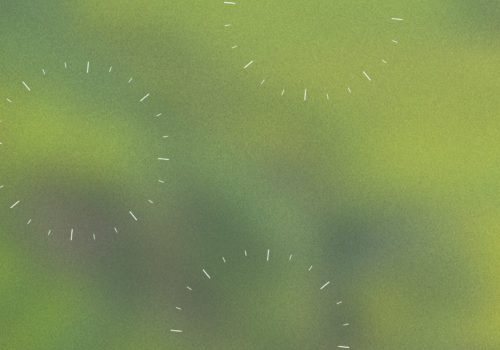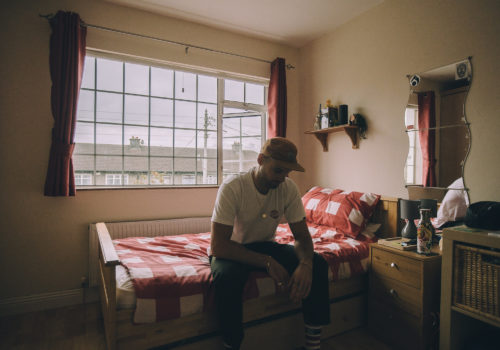22 Questions for 2022: Art & Culture
Words: Eva O’Beirne
Artwork: Paul Smith
Photography: George Voronov
Photo of Ellen Kirk: Atsushi Kakefuda
Photo of Tomike: Leon Dutra
District has challenged 22 different organisations and people to ask the questions that matter to them for the year ahead.
From politics and activism to labour and housing, we wanted to reach all corners of this little island to see what problems are most pressing to its people.
In our fourth and final part of the series, we sat down with representatives who are involved in all aspects of art and culture, detailing the change they want to see in 2022.
Theatre and Performing Arts
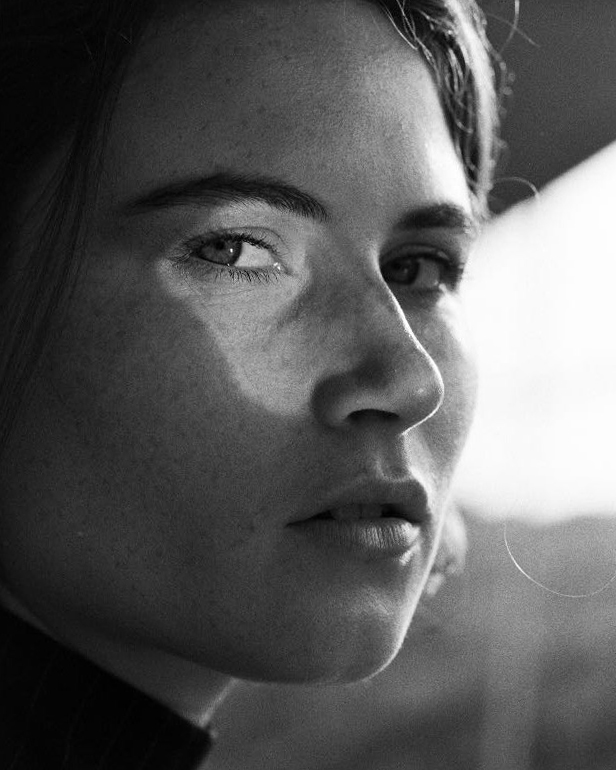
How can theatre and performing arts productions learn from the pandemic?
Ellen Kirk is a Dublin-based designer working across theatre, film and music. When asked what was the catalyst for her career, she explained that it wasn’t a concious decision: “I don’t know if it was ever necessarily a decision I made to do this, but a series of smaller decisions to keep pursuing the next thing that interested me. I began designing shows and events in DU Players with friends. I started with costume, then set and eventually playing around with projection mapping and AV a bit. At the time I probably saw it as a very consuming pastime.”
The pastime has now developed into a flourishing career. You may recognise her work from music videos such as Kojaque’s AirBnb and Phoenix, as well as various other collaborations. But that doesn’t mean that the pandemic was plain sailing. Ellen described the shock to her system as projects fell apart overnight: ” I went from knowing I had enough freelance design work for a full year to absolutely nothing. I had been doing mostly theatre and music related things pre-pandemic which all completely stopped with the first lockdown. It was a bit of a shock to the system, but, in hindsight probably well timed. It’s a bit clichéd at this point but it forced me to slow down and take stock for the first time in a long time.”
Ellen’s personal experiences helped her realise the benefits of more remote work during the first few weeks of lockdown: “I’ve dealt with chronic illness since I was 16, so in lots of ways the world stopping and figuring out remote working was a bit of a blessing and made my life a lot easier. I think a lot of people who have dealt with chronic illness were strangely suited for the pandemic. Not being able to confidently make plans, not seeing people for long periods of time, fretting about health, frequently thinking things were getting better and then being disappointed – a lot of that was all too familiar.”
For 2022, Ellen is focusing on what we can learn from the past two years more than anything else: “Some elements that came about because of the pandemic, like more remote working have made it a much more accessible place to work and I’d love to see that continue.”
“It’s also interesting how much theatre has been filmed and streamed and how many theatre people worked more in film over the pandemic. It will be interesting to see how much this translates into new work being made.”
“It’s difficult to see how the artistic community will weather Dublin much longer with the cost of living and rent being so high, and venues closing down left, right and centre.”
Ellen Kirk
However, she acknowledged that although many efforts have been made by creatives to encourage Irish culture to thrive, emigration is still too tempting for artists and designers: “It’s difficult to see how the artistic community will weather Dublin much longer with the cost of living and rent being so high, and venues closing down left, right and centre.”
District’s recent Post Pandemic Report illustrated that the availability of nightlife venues in Dublin is at an all time low, which puts pressure on production designers like Ellen to seek work in other countries to be able to survive.
Ellen does point out however that small steps have been made to assist creatives, but they may not be enough: “I think the National Campaign for the Arts are doing some incredible work lobbying for supports for artists and highlighting what it’s like living as an artist in Ireland. The introduction of a trial for artists universal basic income is promising and I’ll be curious to see what comes of that.”
“I love Ireland, but I’ve definitely been tempted to emigrate. I think any creative person in their twenties who is still here has. I have had opportunities here that I probably wouldn’t have gotten in places where I know less people, but I’m also aware of opportunities I’ve missed out on by not moving away.”
Ireland-based artists have frequently banded into collectives in order to create their own opportunities and to support each other. In 2018, Ellen became one of the co-founders of Murmuration. Their first show, Summertime, was a live theatre/sound installation at the Dublin Fringe Festival. The audience wore headphones and had a live feed of two actors recounting the course of a relationship over a summer.
In Autumn of 2020, when Irish theatre was cautiously emerging from lockdown Murmuration put on a show fittingly based around intimacy without proximity. Formulated before the pandemic even began, Will I See You There used a window looking onto Meeting House Square as a form of make-shift cinema screen to display microphoned actors. “It’s funny because hardly anyone got to see it because of the limited capacity, but having it be one of the first live things to come back, and easing the audience back when people were still feeling pretty edgy was really lovely,” Ellen recounted.
“It was just one of those shows that came exactly at the right time. It was a struggle to make, with our team living in multiple countries and unable to travel, but in the end I think we were all really proud of it.”
But she certainly won’t miss the challenges of having to adapt theatre and productions to unpredictable circumstances: “I’m looking forward to uninhibited live theatre again, I think everyone is. Being packed into an audience. I look forward to a year really celebrating the fact that theatre is live again and houses can be full. I’ve seen enough streamed shows for a lifetime.”
You can check out Ellen’s website here.
Media
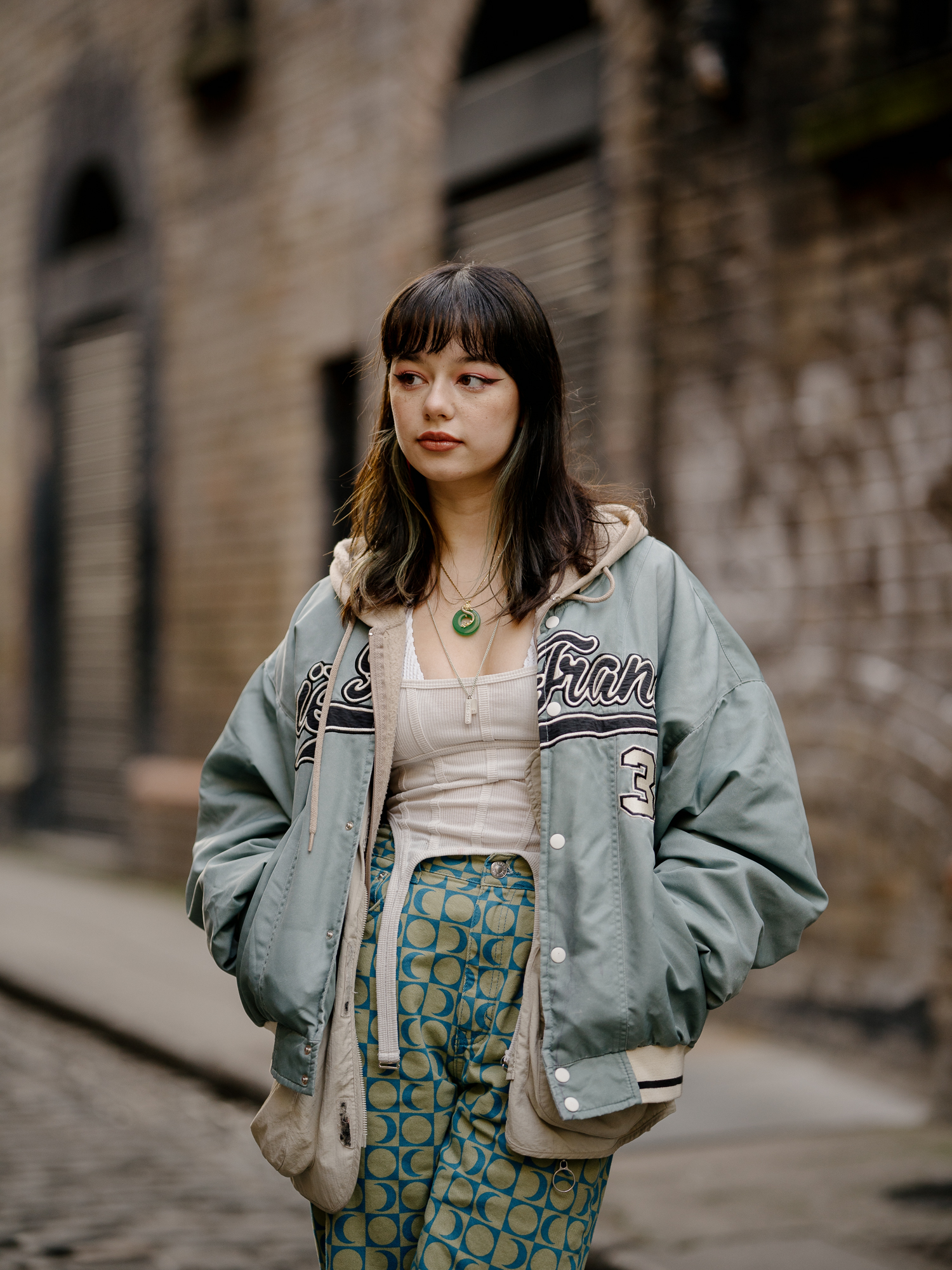
When will diversity become the norm in Irish media?
The GALPAL Collective is an organisation dedicated to the celebration, creation and support of art by young queer folk, women, and people of colour. The collective was founded by journalist and writer Ashley Chadamoyo Makombe alongside filmmaker and visual artist Aisha Bolaji in 2020.
Aiesha Wong, a graphic designer and head of communciations for GALPAL, sat down with us to talk about meaningful diversity, minority representation in Irish media and GalPal’s vision for the next year.
“I’ve always struggled with having a mixed idenity,” Aiesha explained. “I remember being conflicted as to what side of the arts community I should label myself under. Am I Irish or Asian? Would I get more success if I called myself just Irish?”
Aiesha noted how many people of colour feel that they’re perceived differently than white artists and that this affects them deeply: “A lot of the time these publications make you feel exotic or that you’re the token person. It can feel really constraining.”
GALPAL seeks to create a space for minorities to express themselves and not feel the binary of labels when making their art. When thinking of her question for 2022, Aiesha explained that she is wondering when collectives of minorities will no longer be needed to platform these groups: “Everything that GALPAL stands for is amazing and there’s lots of other collectives that do similar work to us, but when will there be a time where these spaces aren’t needed, where we’re already mainstream?”
GALPAL is focused on individual particpation, often revolving around a set theme for each month. “But really its about creative freedom,” noted Aiesha.
The collective is planning to release a magazine later this year to promote Irish talent that is often overlooked by mainstream media.
“So many artists don’t receive the recognition or even appreciation that they deserve,” said Aiesha. “GALPAL wants these people to know that they’re valued.”
“I remember being conflicted as to what side of the arts community I should label myself under. Am I Irish or Asian? Would I get more success if I called myself just Irish?”
Aiesha Wong, GALPAL Collective
Aiesha spoke about her own experience as a creative and noted that sometimes she “isn’t sure” if she’s being included because of her merit or because of her background. “A lot of diversity efforts can be very performative and surface level.”
“I feel like there will always be a sense of imposter syndrome for me when I get opportunities or when I’m being platformed because in my head I’m like: “Do they really want me for the art I can make or is it a box ticking exercise?”
According to Aiesha, the pandemic has allowed creatives who “aren’t in the know or don’t have connections” to become established in their own right. Suddenly, she was gifted time to explore the world of graphic design and began to book projects. But in order to sustain small creators and their careers, Irish media needs to make a concious effort to give them employment.
For the year ahead, Aiesha wants to expand into the music industry and design for various festivals and gigs. “I also want to make art that is for me and be able to sell it. At the start of my career I was very much a people-pleaser and focused on delivering a service. This year I want to deliver a service to me, as an artist, and produce work that I would like people to buy.”
GALPAL is currently collaborating on a project that will hopefully create a standard for inclusion and diversity across collectives around the world, not just in Ireland.
Although not finalised just yet, the policy will serve as an effective checklist for inclusivity, similar to those for accesibility services. The policy will hopefully serve as a signpost to readers as to whether an organisation is commiting to uplifting minority voices.
To read more about GALPAL and to recieve updates about their upcoming projects, you can visit their website.
Nightlife
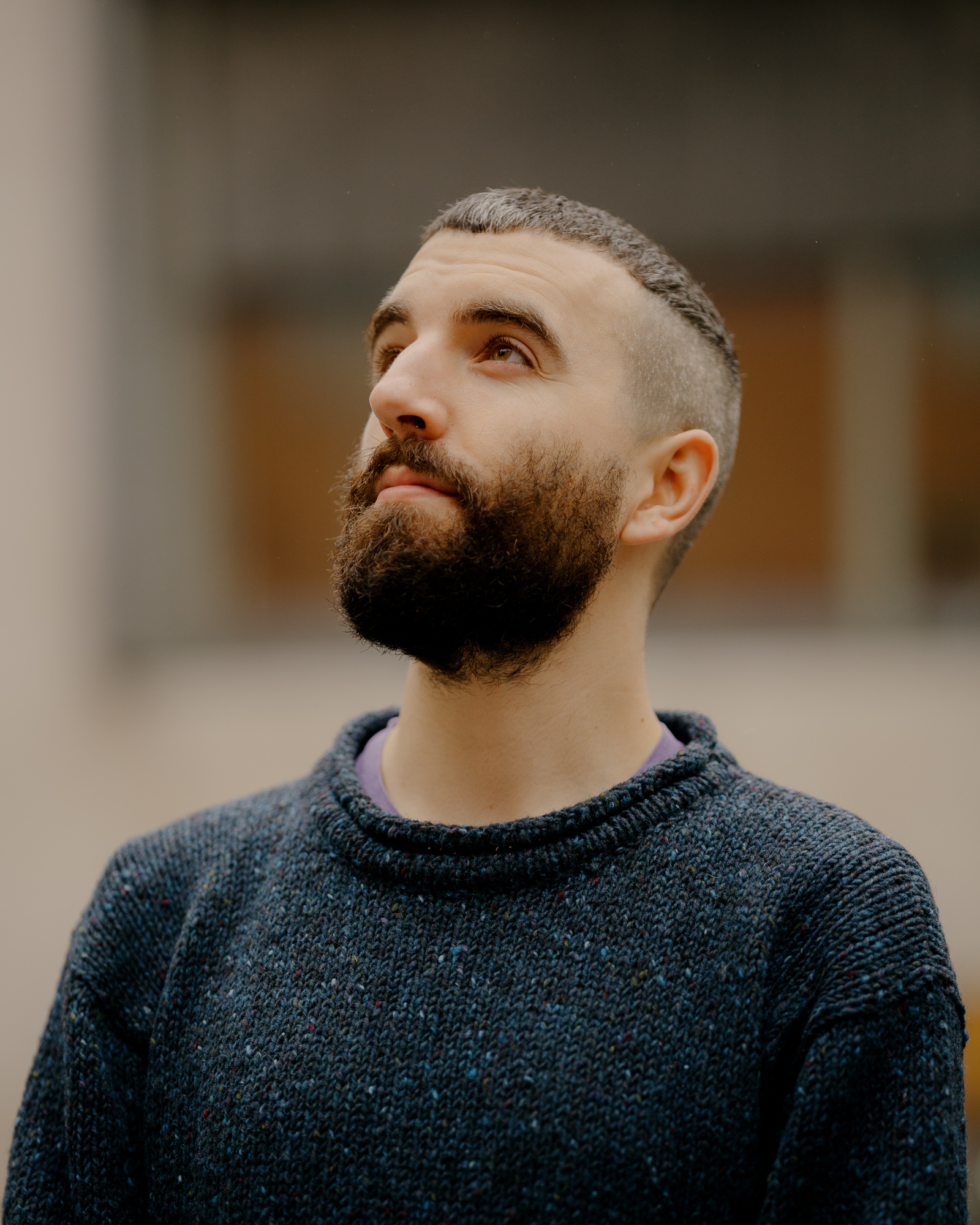
Will Dublin ever have enough infrastructure to support its nightlife and culture?
Robbie Kitt is a Dublin based DJ and electronic musician. Also known as r.kitt, you may recognise him from his work as a spokesperson for the Give Us The Night campaign, which has been advocating for positive changes to nightlife in Ireland. According to Robbie, positive changes are on the way but they may be too late to save Ireland’s fading nightlife culture: “The rot had set in before the pandemic started, but the pandemic accelerated the erosion of these spaces for self expression.”
“The key infrastructural thing we need in this city is venues that can accommodate 100, 150 people. Feeder venues to give smaller artists a place to start out. People need the freedom to express themselves creatively, experiment with their act, without the pressure of a financial return of selling out a space.”
There appears to be a larger sense of community amongst both business owners and patrons in the Irish nightlife industry then there was before the pandemic began.
“I think everybody was wrapped up in their own worlds, living week to week,” Robbie explained. “People were trying to get by, booking gigs and festivals and suddenly it was eliminated. We started to realise that we didn’t know when we would dance again.”
“I wasn’t into live streaming myself, and don’t get me wrong it was a great way to support artists and make sure that they had some income but I think livestreams were perceived as a perfect replacement for live gigs, which they weren’t. From my perspective it just wasn’t sustainable.”
Limited opportunities combined with a rising cost of living and a declining amount of venues for artists in the capital has caused the revival of campaigns such as Give Us The Night in order to raise awareness about the declining state of Ireland’s nightlife.
Give Us The Night’s aims include supporting the conversation around nightlife and the night-time economy in Ireland, highlighting the economic value and societal benefits of a diverse and vibrant Irish night-time industry and to ensure the creation and preservation of both jobs and businesses in the industry.
The voluntary campaign has been extremely vocal around the issue of licensing hours and wishes to ensure that Ireland adopts a more progressive European approach to nightlife, that reflects the wide range of lifestyles and working hours here. Robbie highlighted that efficient late night transport and preservation of venues are key to late-night licenses being successful for the Irish economy.
“The rot had set in before the pandemic started, but the pandemic accelerated the erosion of these spaces for self expression.”
Robbie Kitt
Robbie himself has been an advocate for night clubs for a long time. Recounting his experiences, he mentioned how he “had written to the Government about the protection of nightclubs and late-night venues and they responded with the stance that they didn’t consider nightclubs to be culturally significant.”
“I think the Government tends to forget that these cultural venues serve as a space to learn social behaviours. To be able to extend your social circle and to alleviate your mental health are two major benefits from having accessible venues.”
This view has since changed for the better as the Government, and more specifically the Minister for Culture, Catherine Martin, has taken an interest in the benefits of nightclubs and late venues. “Working with the Department of Culture and having civil servants, who probably had no awareness of the benefits of nightlife, come into a club setting and observe the benefits of nightlife is a huge step forward in terms of Government understanding of why nightclubs are vital to our culture,” explained Robbie.
“The Department of Culture now has cultural ambassadors who can understand what the inside of a nightclub is like instead of assuming the worst. They’ve seen people smiling, enjoying themselves and are realising how important late-night venues are to the population.”
“Government having these nightclub diplomats encourages them to view clubs as cultural assets rather than a bunch of data on a spreadsheet.”
Despite these leaps and bounds, Robbie emphasised these actions by the Department of Culture may be for nothing if the preservation of venues and investment in improving nightlife facilities does not continue.
To read more about the Give Us The Night campaign click here.
Check out Robbie’s work here.
Visual Art
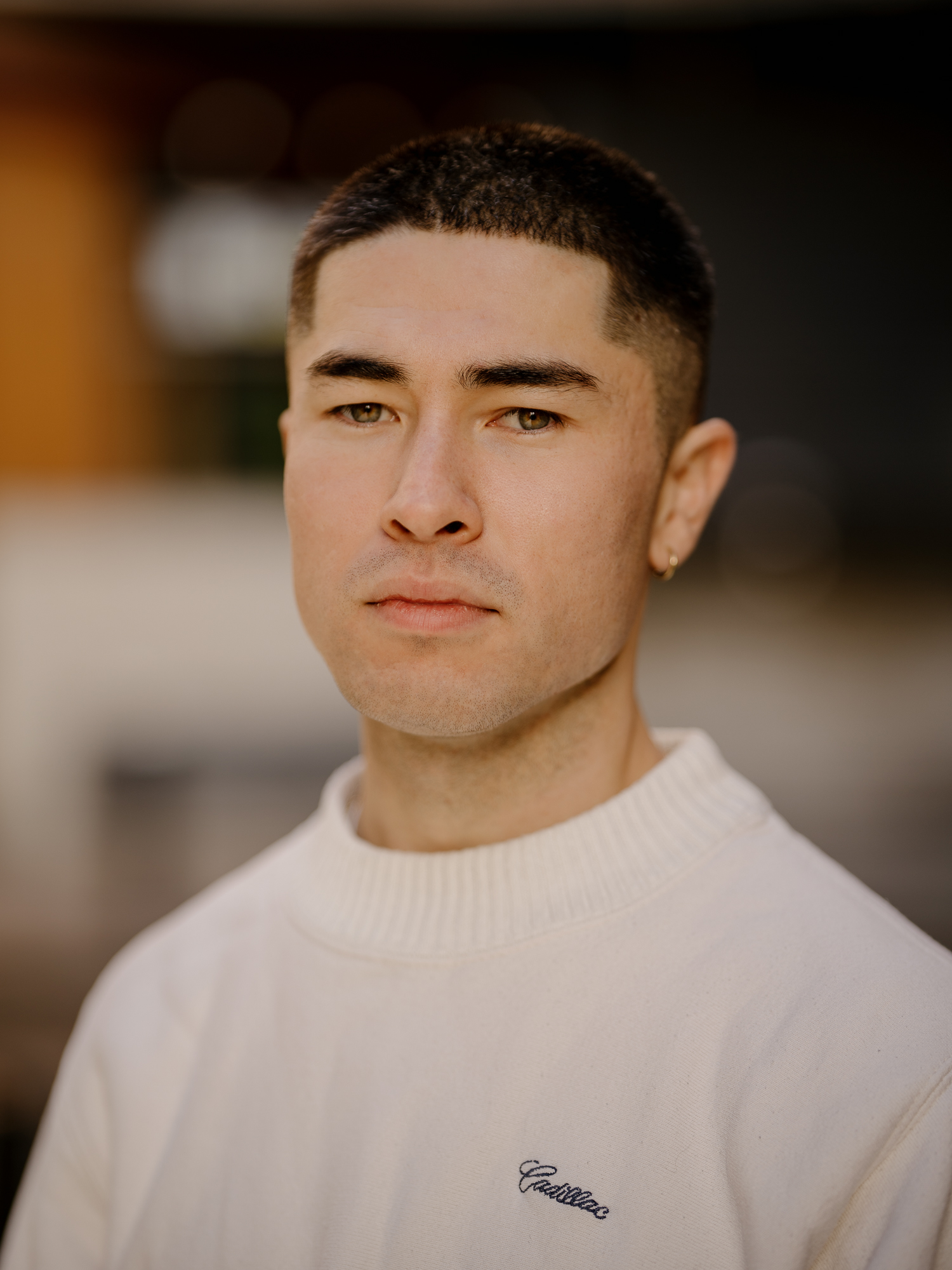
How can Irish artists be expected to thrive when the cost of living is so high?
Shane Keisuke Berkery is a Dublin-based painter who received the NUI Art and Design Award in 2015 and both the Hennessy-Craig and Whyte’s awards at the RHA Annual Exhibition in 2016. Shortlisted for both the Hennessy Portrait Prize in 2017 and the 2019 Zurich Portrait Award, he is certainly one to watch when it comes to Irish artists. But Shane is hyper-aware that not every creative has found the success he has on this island.
The pandemic served as a time for Shane to sit back and re-evaluate how he wanted to work as an artist. From exhibitions being displayed on an appointment basis to experiencing a creative lull, he acknowledges that the uncertainty of the past two years has made it hard to produce art. “The response when you display your work on social media just isn’t the same,” Shane explained. “The likes and the comments don’t live up to seeing people react in person.”
Shane’s passion for art began as a child when his mam would bring him into her college studio where she was studying architecture.
“I would make pieces out of scraps,” Shane recounted. “My parents completely supported my career which I’m very grateful for.”
“I feel incredibly lucky to be able to make a living here and I would like to stay here. But there isn’t enough physical venues, opportunities or collectors. Anyone who is ambitious feels the need to leave.”
Shane explained that he simply doesn’t understand why arts and culture aren’t a main priority of the current government, alongside economic growth. “Ireland has this unique opportunity of being positively perceived by every country in the world. We have a huge cultural footprint and yet we don’t have any real supports for artists.”
“So many people I went to college with are leaving for London, New York, any city with more opportunities than here. Venues are disappearing. Either there needs to be more money invested in the industry to nurture art and culture or the cost of living has to come right down so that people are attracted to come to Ireland as an artistic destination.”
“Either there needs to be more money invested in the industry to nurture art and culture or the cost of living has to come right down so that people are attracted to come to Ireland as an artistic destination”
Shane Berkery
From his own experience, Shane outlined that many artists have a side hustle in order to survive in Ireland’s art scene. Whether it is selling prints of their work or having a job in hospitality or retail, it is clear that to be a creative in Ireland is becoming harder as rents continue to rise. The recent findings of Daft.ie’s Irish Rental Report for quarter four of 2021 revealed that the average national rent in Ireland sits at 1,524 euro per month, which is ten per cent higher than the same period in 2020 and the highest rate since early 2018.
But it is the concept that artists need a “real job” as Shane jokes, in order to support their passions that diminish the importance of creativity in Ireland.
“My parents never put pressure on me to go into any particular career which I’m very grateful for,” said Shane. “It has been said jokingly to me by my friends, that I should get a real job, but the perception is still there on a country-wide basis.”
“Living here can be incredibly frustrating, but I do love it here,” Shane explained. This frustration was perhaps perfectly encapsulated by his portrait of Micheál Martin and Leo Varadkar on his Instagram.
You can check out Shane’s work and upcoming exhibitions on his website.
Music

When will we dedicate ourselves to showcasing minority Irish talent?
Born and raised in the capital to Nigerian parents, singer-songwriter Tomike described herself to District as “very free spirited, outspoken and creative. I like to show vulnerability in my art as this is something I find hard to full do day to day.”
The alternative, neo-soul singer songwriter has experienced a constant upward trajectory, going from strength to strength in the past few years. Tomike’s achievements include performing for Hilary Clinton in 2012 to being highlighted as a Black Artist To Watch by the BBC. But entering the music industry wasn’t a straight-forward path for her.
“From a very young age I have always been drawn to music and entertainment, my yard time in school was spent teaching and learning dance chorography. Growing up, my big brother would love to watch cartoons and all I ever wanted to watch was music channels. I used to fight with him over the
remote just to watch the latest music videos,” Tomike explained.
“I loved seeing all different types of people making music and creating art on TV I felt like everyone was represented. People that looked like me and people that didn’t. But as I grew older, I never saw anyone that looked like me on Irish TV or in the Irish entertainment sector. It made it really hard to be able to see a future in music for me for a very long time.”
Instead of studying music or arts in college, Tomike studied law in DCU. When asked why she made this choice, Tomike noted that she “was running away from it”.
“I didn’t really listen to music for the three years I was in college as it used to make me feel so guilty,” she explained.
“As soon as I sat my last law exam in 2018, I wrote my first ever song It wasn’t great but it was a start. And it began there.”
“As I grew older, I never saw anyone that looked like me on Irish TV or in the Irish entertainment sector. It made it really hard to be able to see a future in music for me for a very long time.”
Tomike
Tomike described her most recent release Can’t Find You as a significant milestone in her craft as a songwriter. “I feel like the progression between this project and my last project is enormous, in terms of song writing, vocals production and all things like that. I’m so proud and excited to share it,” she explained.
But Tomike is aware that, like many other musicians, she may have to move abroad to keep her career moving: “I think nearly every Irish artist has been tempted to migrate. I love Dublin – it’s all I’ve ever known. But I do feel as black Irish artist in order to reach a certain level of success, opportunities and even recognition, emigrating seems like the best way to get there.”
When asked how Ireland’s music industry can change to help embrace and platform black artists, Tomike points to festivals such as Longitude and the recently announced For The Culture festival, both of which have platformed and celebrated black Irish artists.
“I still feel like Ireland’s music industry is growing rapidly and things are beginning to change for the better. But there is still a huge need for improvement in terms of diversity and inclusion in the entertainment industry not just in music but in TV, radio etc,” noted Tomike.
“I think Ireland has a crazy amount of black talented artists that get overlooked, especially for big opportunities that could really help push urban hip-hop culture in in Ireland. Here’s to hoping other Irish festivals curate a black Irish line up.”
You can check out Tomike’s music here.
Elsewhere on District: 22 Questions for 2022: Politics & Activism
